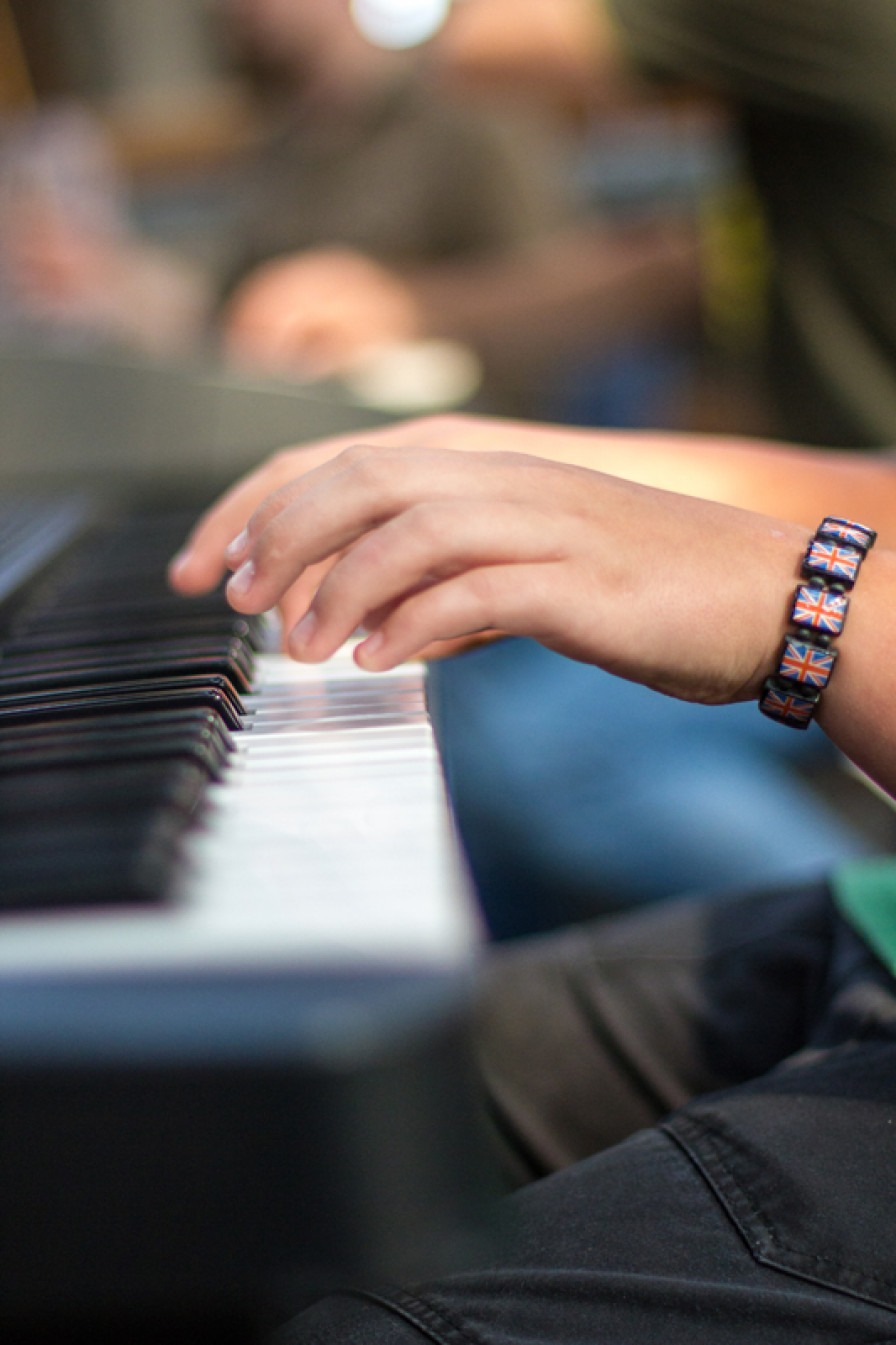Feel better in a better ward: outcomes in mental health units mitigated by music

The outcomes that Rhythmix work towards and capture have emerged in the course of work in children and young people’s healthcare settings. Our intention to reduce anxiety and isolation and increase self expression is widely supported by the healthcare staff who have helped to shape and guide our work right from the beginning. They recognise both the need to address these issues as part of the care they offer and the effectiveness of live music making in meeting them. In this two part series we explore internal and external factors affecting our work in children's wards and units and mental health units.
In our previous blog, “Feel better in a better ward: Internal and external challenges in a children's ward mitigated by music”, we discussed how music holistically improves the experiences of patients in children's wards. Our Music in Mind programme shows that despite the different setting and treatment, almost any aspect of healthcare can be improved through person-centred music making.
Young people at Chalkhill Child and Adolescent Mental Health (CAMHS) Unit (a tier 4 residential CAMHS unit) have the opportunity to learn instruments, make music and join a band at Rhythmix sessions. Making music provides a safe non judgemental space to express themselves, gain confidence in engaging with others and hopefully ignite (or reignite) an interest in music they can take with them when released from hospital.
The young people at Chalkhill have a range or combination of, extremely complex mental health difficulties. These include acute psychosis, mood and conduct disorders, bipolar disorder, clinical depression and obsessive compulsive disorder. Many young people have serious eating disorders. Due to the specialist nature of the unit, young people are referred from many different local authorities across the South East. Chalkhill is seeing an increased number of referrals and children and young people are more acutely unwell when they are admitted. 2/3 of children and young people who attend Chalkhill have been detained under the mental health act.
Many of the young people who arrive at Chalkhill are unable to attend school, have experienced bullying and have very low self esteem. This lack of self-esteem and feelings of isolation are some of the unifying features of the experiences of children and young people with mental health problems, and this shared experience is something that bonds many of the young people who attend Rhythmix’s sessions at Chalkhill. Being able to make music with people who understand each other's circumstances helps to rebuild self-confidence and builds new vital peer support systems.
The young people at Chalkhill Mental Health unit are in an inpatient facility, many still feel very isolated, away from family and home and choose to stay in their rooms and avoid engaging with others. The young people have with a range of diagnoses and their emotions and mental states can vary greatly from day to day.
At Chalkhill our music making sessions are flexible, inclusive and welcoming. We give young patients the opportunity to make music with no pressure to perform, no need to have a certain musical standard or to sign up for multiple weeks. The young people are able to come and go as they choose.
Staff have frequently reported that the music sessions are a hugely effective way at encouraging young people to engage - both with a creative and positive activity and with other patients in a group setting.
Our Music Leader meets them where they are, working closely with the Occupational Therapists and other members of the clinical team to ensure we are aware of any issues in advance of the sessions.
Outcomes
The outcomes that we work towards and capture have emerged in the course of work in children and young people’s healthcare settings. Our intention to reduce anxiety and isolation and increase self expression is widely supported by the healthcare staff who have helped to shape and guide our work right from the beginning. They recognise both the need to address these issues as part of the care they offer and the effectiveness of live music making in meeting them.
It's impossible to establish a ‘baseline’ within this participant group. The strength of our work lies in working with the staff to understand what our participants need and in the Musician’s skill in responding to the individual. We respond to each individuals need so our intentions and interactions vary.
Making music provides a safe non judgemental space to express themselves, gain confidence in engaging with others and hopefully ignite (or reignite) an interest in music they can take with them when released from hospital.
“This group has shown to help young people increase self-esteem, confidence and develop their skills in self-expression and working as part of a team which is vital in independent living upon leaving the unit.”
Steph Hutton, Day Service Lead / Senior Occupational Therapist
